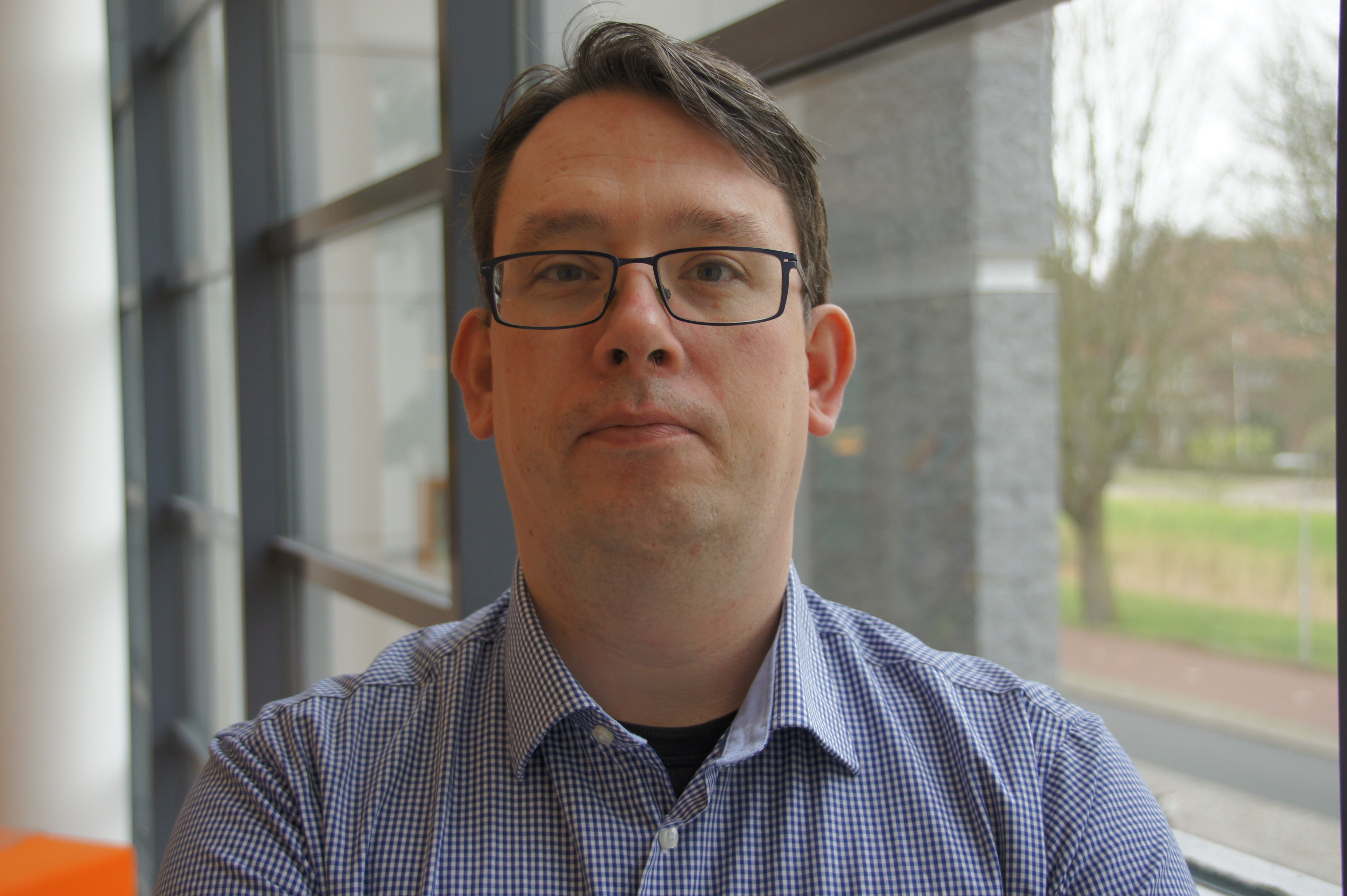Department Heads talk about gender diversity
Are you curious about the opinions of your colleagues regarding the role of women in science? In a series of interviews we will hear their perspectives on gender diversity, equality and inclusion. What are their thoughts, feelings and actions on creating diverse and inclusive working environments? Today we are talking to Martijn Warnier, Professor of Complex Systems Design, and head of the Multi-Actor Systems Department in the Faculty of Technology, Policy and Management.
An open culture, where people are able to give feedback to each other, is essential. It promotes an open atmosphere where people don’t begrudge each other’s successes.
In the beginning
I studied Artificial Intelligence. It was a fairly diverse programme, but even then I noticed that there were more girls on the social courses such as psychology, while the STEM courses attracted more boys. Later, when I took my doctorate in Computer Science, it was mainly men. That wasn’t something that troubled me, and at that time I wasn’t occupied with gender equality. I was not aware that such an environment could lead to issues. That awareness only grew gradually.
Why diversity
We need diversity, both visible and invisible, to overcome large-scale, complex problems. In a diverse team, people are more inclined to confront each other. I think that’s invaluable, because it forces you to reflect on your own insights and choices. For me, diversity is something we need to embrace as an organisation, particularly for an academic organisation such as TU Delft.
Equal opportunities
It’s my job to make sure everyone in the department can do their work well. I want every employee to realise their full potential, to be able to use their qualities and to have equal opportunities. It’s good to talk about these things if you want your colleagues to flourish. As a manager, I feel that you need to be able to recognise and call out undesirable behaviour. Sometimes that can be difficult – I’m only human too, with a tendency to react too quickly to what others say. That’s all part of life in the academic world, with all those very clever people. Everyone wants to show how smart they are. An open culture, where people are able to give feedback to each other, is essential. It promotes an open atmosphere where people don’t begrudge each other’s successes.
Complementary profiles
We have a traditional tendency to look at certain success criteria and see these as more important than other things such as teamwork or teaching duties. A successful team is made up of people who complement each other, not people who are all alike. For a manager, it is important to convey the importance of complementary profiles. A winning football team is not made up of 11 strikers. It works best when an academic team achieves a great result through the collaboration and synergy of the individual researchers with all their various talents and perspectives.
Work-life balance
I tell my PhD candidates that working 40 hours in the week is enough, but I don’t always set a good example. However, I do stress that working an extreme number of hours each week is not a condition for a successful academic career. An employer is responsible for communicating that it is important to distance yourself from your work. Other things are also important in life, such as starting a family. There’s never a good time for that in your academic career [smiling], so that shouldn’t hold people back. I’m keen to engage with my team on this kind of issue. The most important thing is to ensure a climate where we can be flexible with each other. A team culture where people support each other where necessary.
Career development
Another aspect related to workplace stress is that many tenure track candidates have to learn to make choices: what am I going to focus on? Post-docs perform specific research within a project and they can deliver perfect work. But in a tenure track position you have other tasks besides research, such as teaching, writing proposals and management duties. And you can’t do everything perfectly, there just isn’t time for that. So people have to learn to make choices, in other words, to learn what things they are very good at and what things they want to do ‘good enough’.
It’s only human
I am convinced that people deliver their best work and are able to do the greatest things when they are in a situation in which they feel valued and where they can be themselves within the team. From a purely human perspective, it is desirable to create such a culture, but I also think that it’s good for science and for society as a whole. That goes hand in hand.
